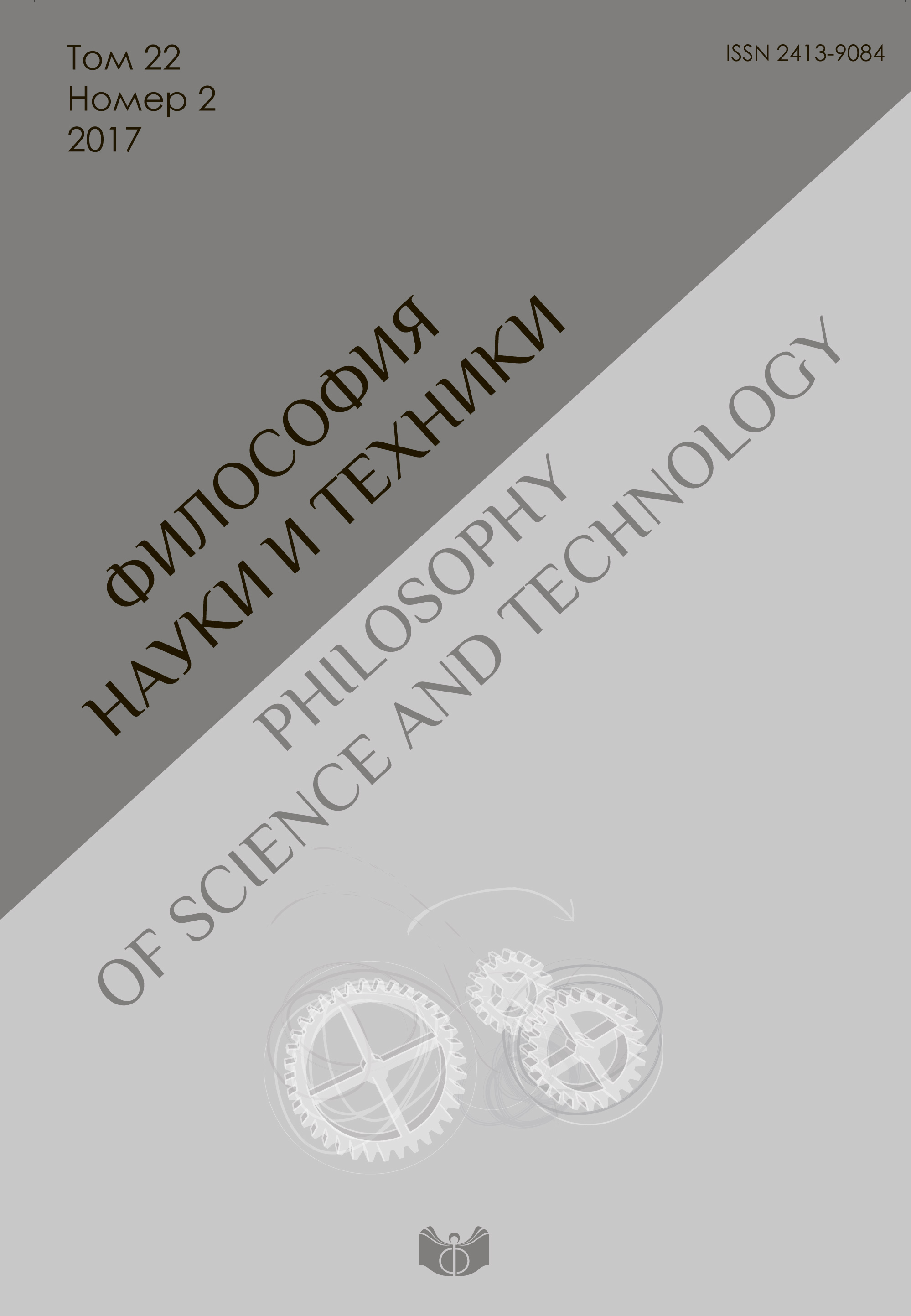Towards the shared ontology of cognitive and social sciences
DOI:
https://doi.org/10.21146/2413-9084-2017-22-2-103-119Keywords:
social science, cogntive science, ontology, metaontology, network approach, object, property, relationAbstract
The article substantiates the assumption that any science, apart from its theoretical and empirical component, draws upon a specific ontology – a representation of the set of typical objects, on which the axioms and theorems are interpreted. According to the author, the
revolution in natural science of the XVII–XVIII centuries could take place not least because a successful ontology of classical physics and, later, of other sciences was found and explicitly formulated, which made it possible to effectively interpret mathematical formalisms and, as a
result, offer satisfactory explanations for known facts and demonstrate prognostic possibilities as well. Particular shortcomings of cognitive and social sciences, in the author’s opinion, are due not to the lack of good formalisms, but to the lack of effective ontologies. The main
difficulty is that the widespread ontology of the human world presupposes the presence of objects endowed with consciousness and free will as further irreducible properties, which makes all possible explanations non-operational. The article deals with general ontological
concepts proposed by Aristotle in “Categories” and “Metaphysics”, and also by Wittgenstein in the “Tractatus Logico-Philosophicus”. It is demonstrated that Wittgenstein’s ontology overcomes the shortcomings associated with some ambiguity in the understanding of the
“first essences” by Aristotle, and, in fact, puts the philosophical doctrine of being on the level of metaontology that makes object ontologies of particular sciences possible. In addition, the paper substantiates the thesis of plurality of ontologies that prevails nowadays both in the
post-classical physic theories and in computer sciences. The closest to the metaontological ideal appears to be the “network” ontology, which assumes for each subject domain the existence of elementary objects, all of whose properties are reduced to relations. It is this particular vision that the author proposes as a variant of a shared ontology for cognitive and social sciences that could contribute to their interdisciplinary integration. As current scientific trends show, the network interpretation works well both in cognitive science (connectionism, deep learning) and in social explanations (network society theories). Philosophy may help integrating both domains in a version of a satisfactory Lebenswelt theory. In the course of argumentation, the author identifies two principles of what he calls “socio-cognitive integration”: the “weak” principle, according to which if an element is part of a social system, it necessarily takes part in cognitive acts; and the “strong” principle, according to which all cognitive tools of humans are necessarily social by nature. The paper invests in defending the weak principle. The author advocates the “hypernet theory of consciousness” stating that, for the first hand, society and consciousness are parts of a single ontology, while society is understood as a network that in a sense extends the network of neurons of the brain building on it and using its capacities; and for the second hand, to this single reality, the same type formalisms are applied connecting the theory of society and the theory of consciousness into a single interdisciplinary project with good prospects for their full integration.











